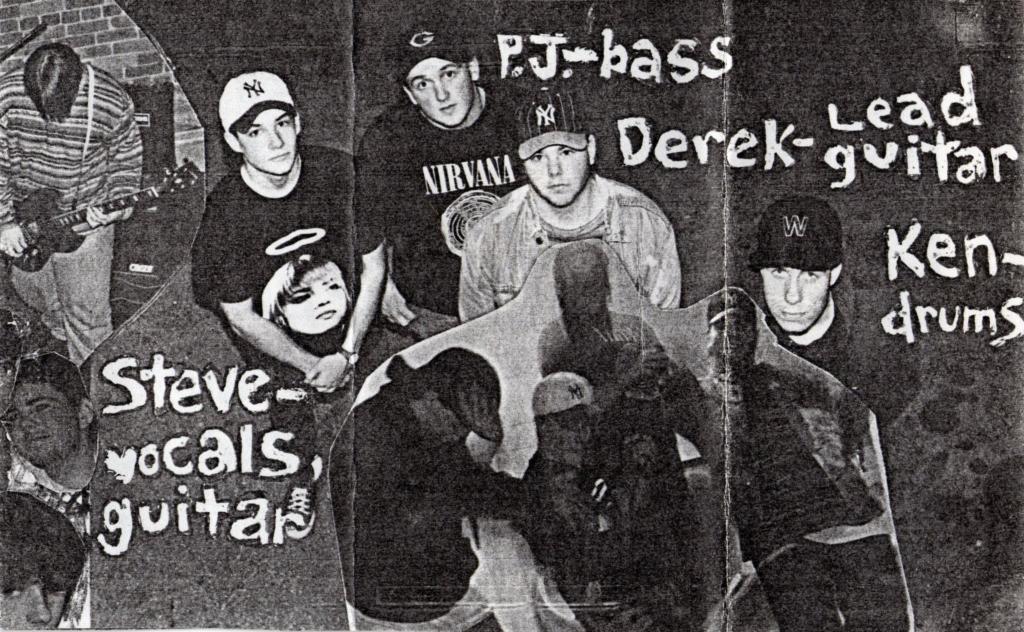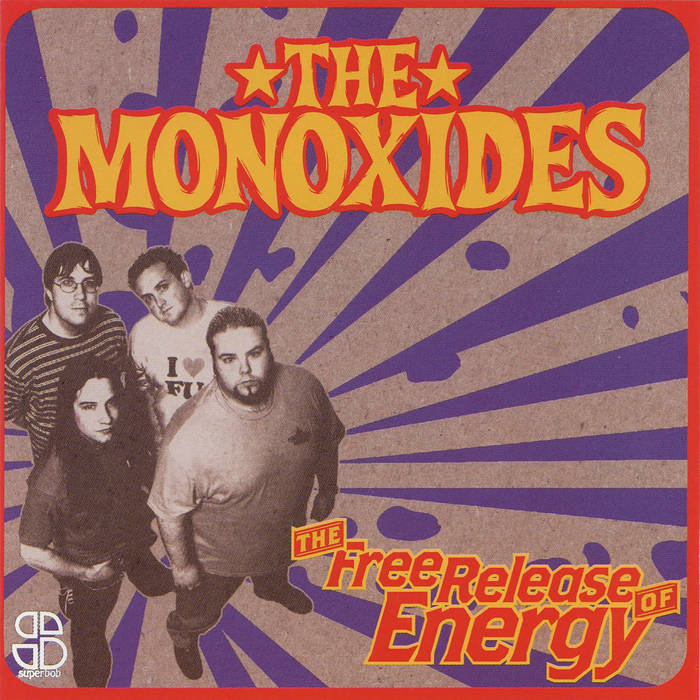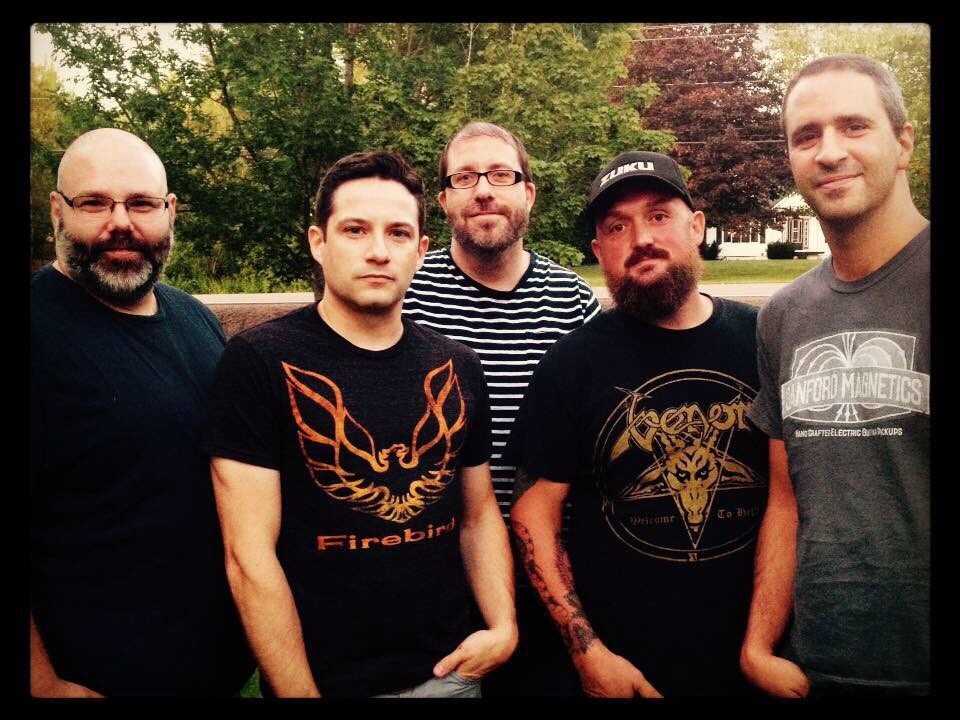
All images courtesy of Ken Kelley/Getty Images

By Andrew Daly
[email protected]
Formed in the late ’80s ahead of the impending alt-rock music, the teenaged members of The Monixides found themselves early-comers to a soon-to-be burgeoning scene.
After spending the better part of the ’90s cutting their teeth, The Monoxides caught a break by signing a major label deal ahead of their debut record. And soon, the group cut Galaxy of Stooges (1997), a glorious blend of indie, alternative, and punk, that garnered a steady cult following through a grassroots approach and energetic live performances.
But despite the strength of The Moxoxides songsmith, worldwide success eluded them, and soon the band found themselves without a record deal. The Moxoxides would rally, however, recording a stout follow-up, The Free Release of Energy (2000), before shifting tides and the rigors of life caused the band to fall silent in terms of new music.
Some 22 years later, The Monixides have remained a steady live draw, with a devout following. Their exuberant nature and infectious music remain, as does their will to continue. And while the band is punting on the idea of new music, the “never say never” ethos remains, leaving the door open for future recordings.
Monoxides drummer Ken Kelley recently checked in with VWMusic to recount his origins in music, the formation of The Monoxides, the group’s trials and tribulations, where they stand today, and what’s next as they move forward.
What was the moment that first sparked your interest in music?
I don’t know if there was one single moment as much as a sort of culmination of moments, but I always had an interest in music, and I don’t know if I can explain the why or how behind it. I have two older sisters and got a lot of exposure to the pop music of the early ’80s from them. I’d play their records – specifically, Journey’s “Don’t Stop Believin’,” John Cougar’s “Jack and Diane,” and Elton John’s “Empty Garden” – while they were at school.
Who were some of your earliest influences that first shaped your style?
The Seattle grunge scene was highly influential on me as it hit when I was still in high school. I was completely awestruck by Dave Grohl in Nirvana because he was just so bloody powerful of a drummer. But Matt Cameron in Soundgarden was and is still one of my faves to this day, and I think a lot of that has to do with how he’d throw in these off-time fills in unconventional places. That was eye-opening to someone looking to develop their own skills and style.
How did the drums enter the picture?
I started playing drums when I was 10, as a suggestion from one of my sisters. Steve [Hickox], the Monoxides’ vocalist-guitarist, had started playing guitar a few years prior, and my sister suggested the drums, stating, “Maybe you guys could even have a band someday.” And that was it!
Take me through the formation of The Monoxides.
Steve and I first jammed together in my bedroom on New Year’s Eve, 1987. I was 12 years old, and he was 13. We recorded the entire jam session on my ghetto blaster, warts and all. But basically, we were making up songs as we went, lyrics, music, and everything. And we’d never play the same song twice, probably because we couldn’t, but also, once a song was on tape, I don’t think we felt the need to learn and refine anything because we never dreamed anyone outside of the two of us would ever hear these silly songs we were writing anyway.
A couple of years after that, our buddy Dana Robertson started playing bass with us, and then maybe a year or so after that, PJ [Dunphy], the Monoxides bassist, started singing. It was this lineup that played our first show in 1990. In the year or so after, things changed a bit. We “broke up” and then reformed without Dana (we’re still sorry, Dana) and played as a three-piece for a bit. Then our friend Chris Lewis stepped in as a vocalist for a few months, and then later, we had another guitarist, Pete Vogels, playing with us.
Monoxides guitarist Derek [Robichaud] and PJ attended middle school together, and during March break 1991, Derek called PJ seemingly out of the blue. PJ told him he had a band and that he should come over and jam with us sometime. When we started jamming with Derek, things just clicked and felt right. And that’s not intended as a slight against anyone else that had been previously part of the band. Derek was easily the best player of the four of us, pushing the rest of us to up our game at what we were capable of. We played our first show with the core lineup – Steve, Derek, PJ, and myself – in June 1991.

All images courtesy of Ken Kelley/Getty Images
Can you recall the band’s first gig?
Absolutely. But I need to preface this with a bit of a backstory: Steve and I had started being regulars at the Sam The Record Man here in Moncton, and it was there we met local scene legend Mark Gaudet, who would later go on to play drums with Eric’s Trip and Elevator To/Through Hell. I don’t recall how it ever came up, but Steve and I had shared with Mark that we had a band before Dana and PJ had even joined and then just continued to keep him in the loop. I don’t know how it came up, but Mark shared with us that his band Purple Knight and another local punk band, Bad Luck #13, were playing a gig and that if we wanted to show up, we could play a few songs. And so we did, and we were awful, but everyone starts somewhere, right? That was March 1990.
What did the courtship from Handsome Boy/BMG look like? What made them the right label?
In early 1994, we had performed well-received showcases at the East Coast Music Awards and Canadian Music Week and had started to receive minor interest from a couple of labels, but nothing concrete ever materialized. That summer, we planned a brief tour of Southern Ontario set up by Jodie Ferneyhough and his office, who would become our management team later that year.
Jodie and his team scored us some awesome, high-profile gigs, including a chart-sponsored showcase at the Rivoli in Toronto alongside Treble Charger and some others. Earlier that year, we had met Cam Carpenter at the East Coast Music Awards and were delighted to see him again at the Rivoli. At the Rivoli gig, he introduced me to Nadine Gelineau, who worked for BMG. At one point, Nadine excused herself from our convo, and Cam jokingly told me, “Don’t worry if she doesn’t like you. She doesn’t like anything.”
We played our set, and one of the first people backstage was Nadine raving about how much she loved us. Two nights later, Nadine and Handsome Boy owner Jeff Rogers showed up to our last Toronto gig before we were due to go home. Jeff told us how much he liked the band and wanted to work with us, but Nadine was also a fan and got BMG Canada’s A&R person, David Bendeth, on board to do a co-signing kind of deal.
What do you recall regarding the band’s debut EP, Out of the Marsh?
The songs on Out of the Marsh were actually intended to be demos and nothing else. We recorded at a studio in Moncton and, because we never thought they would ever be released, didn’t fine-tune and refine the songs as much as we could have. It is/was a pretty scrappy recording. We remixed the five tracks on the EP at Metalworks in Toronto with Brad Nelson.
How did the band progress on Galaxy of Stooges? How did you most impact its recording?
By the time it came to recording Galaxy of Stooges, we were a finely-tuned machine. At least, I think so. We had more than two years of touring experience and growth behind us, and it felt like we were in a good place. We met Galaxy of Stooges producer Moe Berg and told him what we envisioned for the record, and he helped bring that to life. Working with Moe was the first time with someone outside the group who helped refine the songs we had written. We hadn’t worked with a producer up to that point, but Moe’s experience and insight were invaluable to the record and how we approached songwriting in general.
What are your greatest memories of sharing the stage with ZZ Top and Our Lady Peace? How critical was that level of exposure for the band?
Anyone that has seen our live show could tell you that we often bring arena-level energy to the stage, no matter how big or small the venue was, so to actually be on stage in an arena was surreal in the best of ways. The ZZ Top dates were the first time we had been part of a tour that was a big machine of stage setups, production, dressing rooms, and catering. It was a whole new world to us and a whole level above what we had been used to playing clubs. It was a great experience from that perspective.
By the time we did the dates with Our Lady Peace about six months later, in January 1998, we were arguably playing at a then-peak for the band, mainly because we had 10+ months of touring behind us. One of the dates with Our Lady Peace was in Saint John, New Brunswick, about 90 minutes south of Moncton, and so we had a pile of friends and family seeing the show. We played a great set and got a standing ovation that night, which felt amazing. It felt like a validation of the hard work we had put in over the previous 9-10 months. Both tours were fantastic in terms of exposure because, as a band, you always want to reach new people.
What was the label support like?
Our original A&R guy at BMG, David Bendeth, was a total straight shooter and told us that while he was excited to see what came from the band, he was also interested in helping develop the group. He said, “I’m signing you for your fourth, fifth and sixth records because I feel that’s where you guys will really start to hit your stride.” No one else we had spoken with had that kind of long-term vision for the band. But less than a month after we signed our contract, David was promoted to an A&R position at RCA in New York City, so I felt like we were in limbo for a bit. Your A&R guy is supposed to be your big cheerleader at the label, and here we lost ours a month in.
A new BMG executive team came in, and I know that I personally felt that support at the top was lacking. I felt that some people at the label – not all, because we had a lot of great support from different folks there, and they know who they are because we’re still in touch with them today – felt they had to work with us as opposed to wanting to work with us and that became evident after Galaxy of Stooges was released.
While the initial push behind the record was encouraging, the fact the label didn’t have us make a second or even third music video when the folks at Muchmusic loved us was truly telling. After the video and single release for “(Can’t Get) Excited,” the label chose to promote radio singles instead, which seemed like a terrible choice seeing how Muchmusic was responsible for breaking acts back in the day. We were a visual band and had built a strong reputation as a live act. But by going the radio single route, I also felt it was the label trying to minimize how much they were spending on the band while also trying to save face, “We tried to promote radio singles, and it didn’t work! Sorry fellas!”
But again, I don’t want this to come across like sour grapes or anything like that. This is just my perspective on how things went down, and while they didn’t work out in the end, I got to travel the country with three of my best friends and make amazing new friends, all thanks to the band. I had lost a record contract by the time I was 22 years old. A lot of people never get the shot, to begin with, so I know we’re incredibly fortunate.

All images courtesy of Ken Kelley/Getty Images
Is that why the band asked to be released from its contract? In retrospect, do you regret that?
At the outset of 1998, it was clear the relationship with BMG had pretty much run its course. There was talking about sending us to Japan, but that, unfortunately, didn’t pan out. Stepping into being unsigned was far from desirable, but it’s what made sense for all concerned – the label and the band – at the time.
The next few years proved tumultuous; walk me through how you navigated it.
After having initially exited the BMG deal in 1998, we were optimistic that we could find another label to work with, but that didn’t come to fruition. On top of that, Derek had landed a gig working as a guitar tech for Matthew Good, and that took him away from the band for a couple of years, which none of us could really fault him for. It was at that time guitarist/vocalist Marco Rocca joined us on an interim basis to fill in for Derek. Marco subsequently became a full-time member of the band in 2003.
What was the band’s mindset going into The Free Release of Energy? Were the rocky few years reflected in the recording?
There was never a question of whether we’d make another record as much as it was about coming up with a batch of songs we felt proud of. And in retrospect, that was the good thing about having 3.5 years between records; we didn’t feel pressure to be on any deadline. The record definitely has a harder edge than Galaxy of Stooges, but I can’t definitively say it’s because of the prior few years as much as that’s just where we were at as a band that was still developing and growing.
To date, why has that proven to be the band’s last record?
Honestly, nothing scandalous or anything of the such. Right around 2000, Derek and PJ started a band called Iron Giant, which made an impressive mark in their own right and kept them busy with a couple of albums and a shit-ton of live shows. Outside of music, we each went off, got jobs, had kids, and just did normal life stuff. I think at that point in time; it made sense that we’d look beyond The Monoxides because this band was our sole focus for so long and time marched on.
Given proper support, what could The Monoxides have achieved?
The easy answer is, “We could’ve been big!” But you never really know in this business what’s going to catch people’s ears and what is just going to fall by the wayside. I remember something David [Bendeth] told us at the outset, which kind of set the tone in some ways: That getting the record deal was akin to buying a lottery ticket; there were no guaranteed winners.
What lies ahead? Will we see another album?
The million-dollar question! We have an older track called “Smash My Radio” that we always felt had some potential to it that’s never officially seen a release apart from a demo recording. But in addition to that, we have a handful of newer tracks that we’ve been holding onto. Whether all these songs get put together for a record or a series of singles, time will only tell, but I’m confident something will hopefully come together in the near future. For what it’s worth, we’ve never stopped playing live and consider ourselves very fortunate that people seem to give a shit and show up when we play. If and when the time comes, people stop showing up, then we may have to re-evaluate things, but until then…

All images courtesy of Ken Kelley/Getty Images
– Andrew Daly (@ajdwriter88) is the Editor-in-Chief of www.vwmusicrocks.com and may be reached at [email protected]
